Good communication is the heartbeat of any thriving homeowners association (HOA). For board members, exchanging ideas and concerns with homeowners effectively can ward off misunderstandings and cultivate a friendly neighborhood atmosphere. Think about it: in a community where everyone feels heard, there’s a noticeable ease and comfort in everyday interactions. The benefits extend beyond just happy residents; it promotes a culture of collaboration and success.
Picture an HOA where everyone is kept in the loop through regular updates and thoughtful conversations. This isn’t just an ideal scenario; it’s an attainable goal. By prioritizing communication, board members can transform the environment into one where trust is built and maintained over time. Dive into our tips for enhancing communication and see how these strategies can pave the way for a stronger community bond.
Establishing Clear Channels
Effective communication starts with having dedicated channels that ensure information flows smoothly and consistently. In today’s connected age, there’s no shortage of ways to communicate, but choosing and maintaining the right ones can make all the difference.
1. Email: This remains a staple for distributing essential information. Board members can send newsletters, meeting minutes, and important alerts directly to homeowners’ inboxes. It’s a reliable way to reach residents easily.
2. Newsletters: Monthly or quarterly newsletters can keep the community informed without overwhelming them with constant messages. It’s an opportunity to highlight community events, introduce new policies, or acknowledge community achievements.
3. Social Media Platforms: Setting up official pages on platforms like Facebook or Nextdoor can foster community engagement and provide a space for informal discussions. It’s also an excellent avenue for sharing reminders about gatherings or general updates.
When managing these channels, transparency is key. Regular updates about decisions and upcoming events create a sense of inclusion among homeowners. It’s important these outlets are not only active but also interactive. Encourage homeowners to voice their thoughts and questions. This two-way street of communication strengthens trust and ensures everyone feels valued within the community.
Facilitating Open Meetings and Forums
Open meetings and forums create great spaces for homeowners to express their views and engage with board members. Regular sessions encourage transparency and establish a platform for community members to voice concerns and share ideas. This open dialogue helps resolve issues quickly and fosters a sense of belonging among residents.
To make these meetings effective:
– Plan ahead: Set a consistent schedule so residents know when to expect these gatherings. It’s helpful to choose a day and time that accommodates most homeowners.
– Promote the meeting: Utilize available communication channels to remind homeowners about upcoming forums. This includes emails, social media, or flyers posted in common areas.
– Create an agenda: Having a clear agenda keeps discussions focused and ensures all necessary topics are covered. This helps manage time efficiently during the meetings.
During these sessions, actively listening to feedback is crucial. Acknowledge the concerns raised by homeowners and offer solutions where possible. When residents feel their voices are heard, it builds trust and encourages ongoing participation and collaboration between the board and the community.
Utilizing Technology for Communication
Incorporating technology into communication strategies can greatly enhance the flow of information. Various tools are available to streamline and improve interactions with homeowners.
– Community Apps: These apps offer a centralized space for residents to access information, submit requests, and receive updates. They are a convenient option for quick communication and efficient management of resident concerns. For example, an app might allow homeowners to report a maintenance issue directly to the board with just a few taps.
– Online Portals: An online portal can house important documents like bylaws, meeting minutes, and event calendars. This creates an easy way for residents to find information without having to contact board members directly.
When adopting these tools, ensure they are user-friendly for all residents. Simple interfaces and clear instructions help prevent frustration and make the technology accessible to everyone, regardless of their tech-savviness.
Building a Culture of Engagement
Creating a welcoming and inclusive environment involves more than communication; it’s about encouraging interaction and participation among community members. By fostering a culture of engagement, board members can strengthen ties between residents and create a more cohesive community.
Ideas for encouraging engagement:
– Host community events: Organize events that bring residents together, such as picnics, holiday parties, or volunteer days. These occasions offer opportunities for casual interaction and relationship building.
– Be approachable: Board members should be visible and open to talking with residents. Regularly attending community gatherings and making an effort to meet new homeowners can go a long way in building trust.
– Facilitate volunteer initiatives: Encourage homeowners to lead or participate in committees or projects that interest them. This can range from organizing neighborhood watches to planning beautification projects.
In communities where engagement is a priority, homeowners feel valued and more willing to contribute positively. Establishing these practices not only solves immediate communication challenges but also lays the foundation for long-term success. By working together and keeping lines of communication open, communities can thrive and create an enjoyable living environment for all.
Elevating HOA Communication: Building a United and Thriving Community
Ready to enhance your HOA’s communication strategies and build a united community? Discover how embracing effective communication practices can elevate your association management efforts and foster stronger bonds among residents. At AMC, we specialize in providing comprehensive association management services to help you create a harmonious neighborhood environment. Let us aid you in establishing meaningful connections and achieving lasting positive change in your community.





